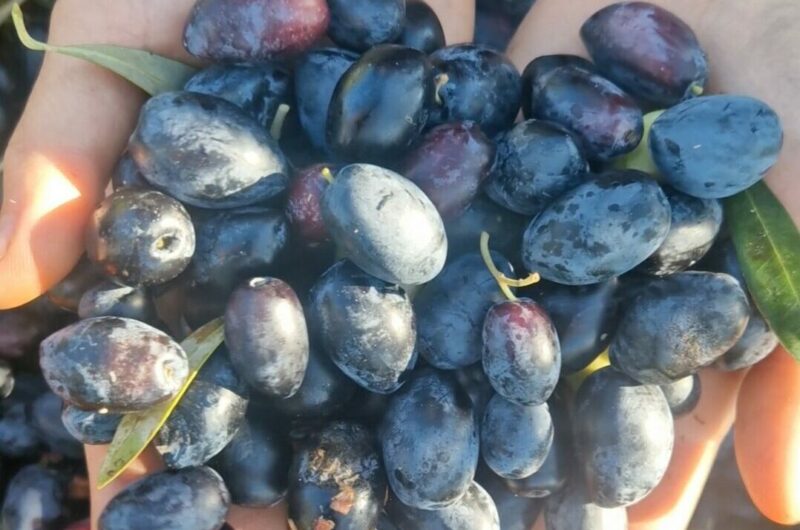Kalamata table olives
Named after the city of Kalamata in the southern Peloponnese, Greece, kalamata olives are known for their great taste, almond-like shape, and dark purple skin. But what steps to follow from tree to table?
Ingredients
700 grams red or brown raw Kalamata olives
4,5 liters water (plus more for soaking the olives)
13 tablespoons non-iodized salt
60 ml red wine vinegar or apple cider vinegar
Directions
- Select the olives and only use the perfect ones, use the bruised ones for something else. Remove any stems or leaves, you could use this as compost. Thoroughly rinse the olives.
- With a fork or the tip of a sharp knife make a small cutting in every olive. This will speed up the curing process.
- Place the olives in a food proof container, preferably glass. Add water and make sure all olives are covered.
- Let the olives soak for 24 hours. Drain the olives and put them back in the container and cover with new, fresh water. Repeat this process for 8 to 10 days. For less bitter olives repeat this process for up to 20 days. During this process you can taste the olives and stop whenever you think the olives have a good taste.
- When the olives are good to your taste, drain the water.
- Now make a brine by dissolving 3 tablespoons of the salt in 1 quart of the water. Salty sea water also works. Want to be sure about the right amount of salt? You could do use the following trick: put a fresh egg in the water, it starts floating and just surfacing? This is when you found the right amount of salt. Pour the brine over the olives and leave for one week.
- Repeat the rinsing and brining process 3 more times, which will result in four weeks of brining in salted water.
- After four weeks you can taste the olives. If it is bitter, continue with the brining process for another week and taste again. Continue until the olives are no longer bitter.
- Drain the olives and transfer them to clean (sterilized) glass jars.
- Make a brine with 1,5 tablespoons salt and 570 ml water. Add 60 ml red wine vinegar or apple cider vinegar. Add the brine to the olives in the jars.
- Close the jars and store them in them in a cool and dark place, the refrigerator is also fine. Wait at least a week or to. You can store them for up to year.


